SCO refuses to toe India’s line
10-nation organisation fails to adopt joint statement
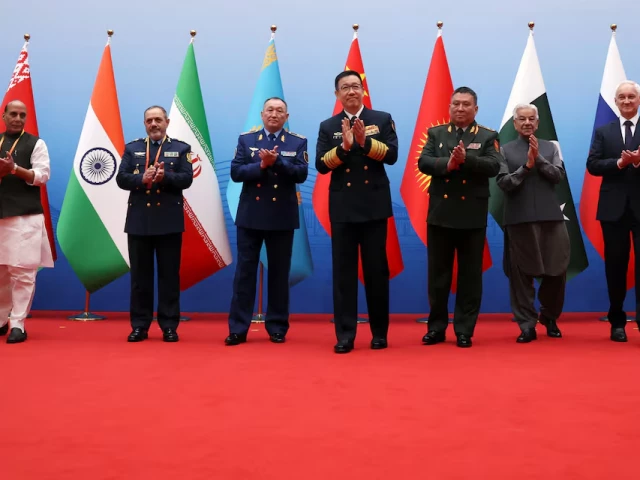
Defence ministers of the Shanghai Cooperation Organisation (SCO) were unable to adopt a joint statement at their meeting in Qingdao, China, after India reportedly refused to sign the document, claiming it was pro-Pakistan for not referencing the April attack on Indian tourists.
The SCO is a 10-member Eurasian security and political bloc comprising China, Russia, India, Pakistan, Iran and several Central Asian states. The defence ministers’ meeting was held ahead of the annual leaders’ summit scheduled for later this year.
Federal Minister for Defence Khawaja Muhammad Asif led Pakistan’s delegation at the meeting, where he reaffirmed the country’s commitment to regional stability, collective security and counterterrorism cooperation.
In his address, the minister condemned Israel’s recent military actions against Iran and the continuing violence in Gaza while calling for peaceful resolutions to long-standing global disputes, including Kashmir and Palestine.
Read More: SCO brings Pakistan, India defence ministers together
Underscoring the SCO’s importance as a platform for dialogue, mutual trust and regional cooperation, Mr Asif reiterated Pakistan’s commitment to the principles of the United Nations Charter and the SCO Charter, describing them as essential to promoting global peace, good neighbourly relations and multilateral collaboration.
He further condemned the recent terrorist attack in Indian Illegally Occupied Jammu & Kashmir (IIOJK), urging the international community to hold accountable those who finance and support such acts. He also referred to the Jaffar Express bombing in Balochistan as another example of cross-border terrorism undermining regional peace.
Highlighting unresolved conflicts as serious threats to global stability, Mr Asif stressed the need for peaceful resolution of issues like Kashmir and Palestine through diplomacy, mediation and sustained dialogue.
However, the meeting reportedly faced a setback when India declined to endorse the final statement, arguing it favoured Pakistan’s stance. The Indian delegation objected to the omission of any reference to the April 22 attack on Hindu pilgrims in IIOJK, in which 26 people were killed.
India blamed Pakistan for the incident, a charge Islamabad firmly rejected. The attack led to some of the most intense cross-border exchanges in years, after India claimed to have targeted “terrorist infrastructure” in Pakistan and Azad Jammu and Kashmir.
Pakistan denied the accusation, stating that the sites targeted were civilian in nature and had no links to terrorism.
Also Read: Rajnath to attend SCO summit in China
Citing anonymous sources, the Foreign News Agency reported that Indian Defence Minister Rajnath Singh believed the draft communiqué “diluted India’s position on critical issues such as terrorism and regional security.”
Singh reportedly said the joint statement “suited Pakistan’s narrative” because it omitted the April attack but included mention of terrorist activity in Balochistan — a region where Pakistan has long accused India of supporting separatist elements, allegations that New Delhi denies.
"Certain members, member countries, could not reach consensus on certain issues and hence the document could not be finalised on our side," Indian foreign ministry spokesperson Randhir Jaiswal told reporters at a weekly media briefing.
"India wanted concerns on terrorism reflected in the document, which was not acceptable to one particular country and therefore the statement was not adopted," he said, without naming the country.
The Qingdao meeting marked the first time senior ministers from India and Pakistan shared a stage since their military standoff in May.
What happened at the SCO meeting?
Shedding light on the SCO meeting, Defence Minister said India was the sole member to oppose the issuance of a joint statement, after objecting to Pakistan’s remarks on terrorism in Balochistan.
Speaking to a private news channel, the minister said: “The Indian defence minister was placed at number three, and I was scheduled to speak fifth — all as per alphabetical order. In my speech, we had an evidence-based stance. I mentioned all the evidences, including the Jaffer Express attack and Kulbhushan Yadav.”
He added that following his remarks, the Indian defence minister requested the Chinese counterpart, who chaired the meeting, for another opportunity to respond. “But since there was no precedent of a member being allowed to speak again, he was denied,” Asif said.
“This is how it started, and India was the sole member to refuse to sign the statement and raised reservations on the draft, which all nine other members of the organisation had agreed upon,” he noted. “Since the draft was not finalised, India refused to pursue it, citing that they weren’t given another opportunity to speak. They also raised objections because Pakistan mentioned terrorism in Balochistan.”
"With the joint statement eventually dropped, Asif explained: 'The SCO typically issues a joint communiqué, but if a member abstains or refuses to sign the document, the statement is not issued.'"
Commenting on Pakistan’s position in the international arena, the minister claimed: “The world is accepting Pakistan’s narrative, especially in resolving regional disputes and countering terrorism. Whereas, India’s international reputation has been badly damaged by its leadership — especially the prime minister and his allies — who hold a violent mindset.”
Pointing to India’s campaigns against Sikhs and its interference in Canada and the United States, he said, “India has sponsored and supported international terrorism, whereas Pakistan is clearly facing Indian-sponsored and harboured terrorism in Balochistan and Khyber Pakhtunkhwa, where groups like the BLA and TTP are operating from Afghan soil.”






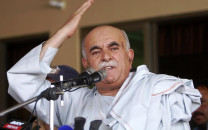
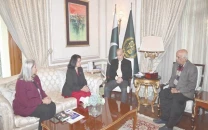
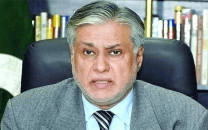


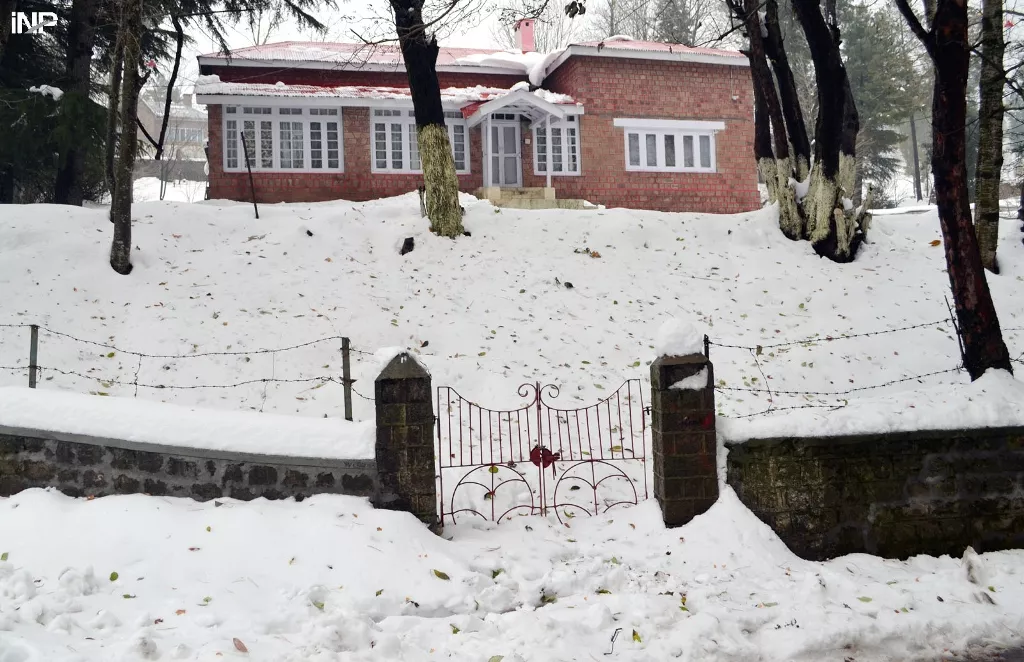








COMMENTS
Comments are moderated and generally will be posted if they are on-topic and not abusive.
For more information, please see our Comments FAQ